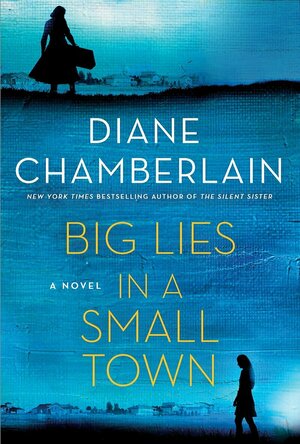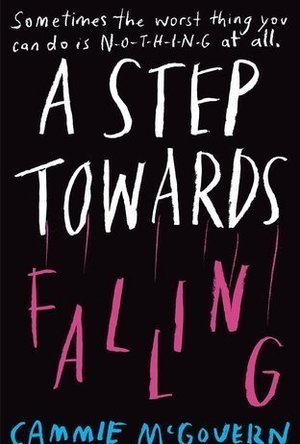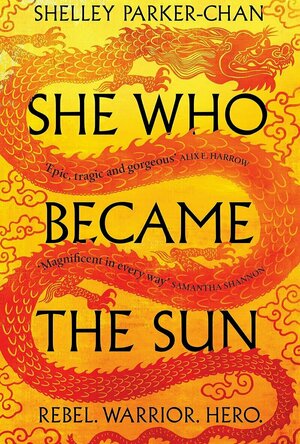Search
Deborah (162 KP) rated Murder at Mansfield Park (Charles Maddox #1) in Books
Dec 21, 2018
The Austen sequel or entertainment is an not uncommon beast these days, even if Pride & Prejudice is more usually the chosen book. As the title might give you a clue - this one relates more to Mansfield Park.
The major characters from the Austen novel are all there in name, but characters and relationships have been seriously altered. The first third of the book is mainly made up of recycled dialogue and narrative from Mansfield Park, but not necesarily in the same order. Mr Rushworth's character is changed to be more like Henry Crawford (and he is given the 'black and plain' description belonging to him in the novel) crossed with Robert Ferrars, so it seems odd when he is given dialogue beloning to the Mr Rushworth of the original novel, although not perhaps as strange when Mrs Norris is found spouting his lines.....
Fanny Price moves to become a rich heiress and the eldest of the female cousins; her character is more like the Maria of the book crossed with Lucy Steele and Caroline Bingley! Maria becomes more like the Julia of the book and Julia becomes more like the Fanny of the novel crossed with Marianne Dashwood - got that yet?! Henry Crawford here I don't really know - I'm not sure we got a proper description, so he does seem a bit of a cipher.
It's not a bad book, but with the murders I found it all rather unpleasant - I prefer such things to be more about the solving of the mystery than the incident itself, and here we have so few characters who could have committed the crime I didn't feel like I was waiting with baited breath for the conclusion (it's not Pug, in case you were worried.....). some characters were so underdeveloped it was rather obvious that they wouldn't have been involved. I do feel that having made so many changes, Lynn Shepherd would have been better off writing her own, original novel; one can't help but feel she has used Austen just to sell her book whereas her original dialogue does suggest that she could allow her writing to stand on its own merits.
The major characters from the Austen novel are all there in name, but characters and relationships have been seriously altered. The first third of the book is mainly made up of recycled dialogue and narrative from Mansfield Park, but not necesarily in the same order. Mr Rushworth's character is changed to be more like Henry Crawford (and he is given the 'black and plain' description belonging to him in the novel) crossed with Robert Ferrars, so it seems odd when he is given dialogue beloning to the Mr Rushworth of the original novel, although not perhaps as strange when Mrs Norris is found spouting his lines.....
Fanny Price moves to become a rich heiress and the eldest of the female cousins; her character is more like the Maria of the book crossed with Lucy Steele and Caroline Bingley! Maria becomes more like the Julia of the book and Julia becomes more like the Fanny of the novel crossed with Marianne Dashwood - got that yet?! Henry Crawford here I don't really know - I'm not sure we got a proper description, so he does seem a bit of a cipher.
It's not a bad book, but with the murders I found it all rather unpleasant - I prefer such things to be more about the solving of the mystery than the incident itself, and here we have so few characters who could have committed the crime I didn't feel like I was waiting with baited breath for the conclusion (it's not Pug, in case you were worried.....). some characters were so underdeveloped it was rather obvious that they wouldn't have been involved. I do feel that having made so many changes, Lynn Shepherd would have been better off writing her own, original novel; one can't help but feel she has used Austen just to sell her book whereas her original dialogue does suggest that she could allow her writing to stand on its own merits.
Kristy H (1252 KP) rated Big Lies in a Small Town in Books
Mar 19, 2020
Morgan Christopher is shocked when she's plucked from prison and told she will be released early, as long as she perform a certain task: restore an old mural from the 1940s. Morgan, an art school dropout, has no restoration skills, but she is desperate to leave prison, where she is imprisoned for a crime she didn't commit. Once released, she finds herself captivated by the mural and what she finds underneath the layers of grime. Meanwhile, in 1940, young Anna Dale, an artist from New Jersey wins a contest to paint a mural for the post office in Edenton, North Carolina. She travels there to learn more about the town that she needs to capture. But once there, Anna is confronted both by kindness and deep-set prejudice.
I've never read a book by Diane Chamberlain before, and I really enjoyed this one. It's oddly captivating for centering on a painting from the 1940s. The point-of-view switches between Morgan and Anna and each are compelling narrators in their own right. This was one of those books where I found myself desperately wishing I could read faster, as I wanted to find out what happened to Anna (we're told early on she "went crazy").
I applaud Chamberlain for her original plot. It's odd, but not in a bad way, as it had me interested the entire time. She does a wonderful job of creating two completely different worlds: Anna's in the 40s and Morgan's in near present-day. She deftly weaves in art aspects; Morgan's drunk driving conviction and her past in prison; Anna's possible mental illness; and Morgan's benefactor, so to speak, Lisa, who springs her out of prison to fulfill the wishes of her late father, Jesse, a famous artist.
While this novel is mainly fiction, there are some great twists and turns, especially as we learn what happened to Anna. Chamberlain delves into race relations, as Anna confronts the prejudices of the south in the 1940s. Her writing style is easy, making you want to keep reading, and overall, I quite enjoyed this one. 4 stars.
I've never read a book by Diane Chamberlain before, and I really enjoyed this one. It's oddly captivating for centering on a painting from the 1940s. The point-of-view switches between Morgan and Anna and each are compelling narrators in their own right. This was one of those books where I found myself desperately wishing I could read faster, as I wanted to find out what happened to Anna (we're told early on she "went crazy").
I applaud Chamberlain for her original plot. It's odd, but not in a bad way, as it had me interested the entire time. She does a wonderful job of creating two completely different worlds: Anna's in the 40s and Morgan's in near present-day. She deftly weaves in art aspects; Morgan's drunk driving conviction and her past in prison; Anna's possible mental illness; and Morgan's benefactor, so to speak, Lisa, who springs her out of prison to fulfill the wishes of her late father, Jesse, a famous artist.
While this novel is mainly fiction, there are some great twists and turns, especially as we learn what happened to Anna. Chamberlain delves into race relations, as Anna confronts the prejudices of the south in the 1940s. Her writing style is easy, making you want to keep reading, and overall, I quite enjoyed this one. 4 stars.
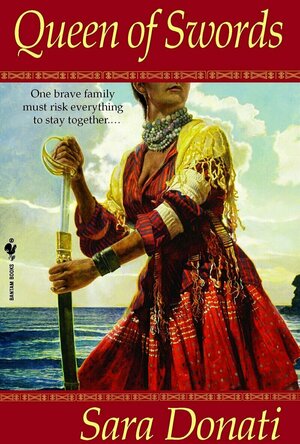
Queen of Swords (Wilderness #5)
Book
It is the late summer of 1814, and Hannah Bonner and her half brother Luke have spent more than a...
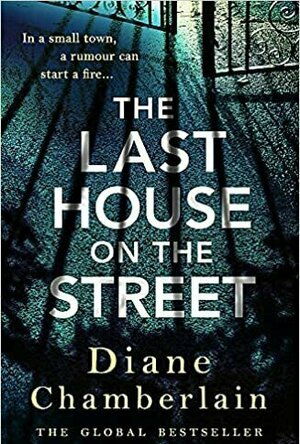
The Last House on the Street
Book
A small town divided by prejudice. A secret that won't remain silent... The stunning new novel...
Hazel (1853 KP) rated A Step Towards Falling in Books
Dec 14, 2018
Rating: 3.5
<i>This eBook was provided by the publisher via NetGalley in exchange for an honest review
A Step Towards Falling</i> by Cammie McGovern is a book full of important messages. As with a couple of her previous novels, McGovern writes about characters with developmental disabilities, i.e. Autism, focusing on the ways in which they interact with the world around them and vice versa. This particular story is written with teenagers in mind, featuring topics such as dating and future prospects.
One of the narrators Emily, along with high school football player Lucas, are being punished for not helping a disabled student when they witnessed her being assaulted. In order to appease the school they are subjected to forty hours of community service – voluntarily helping to run the Boundaries and Relationships class at the Lifelong Learning Centre. Here they meet a handful of people with disabilities who need help to identify what is and what is not acceptable in potential romantic relationships. Although Emily and Lucas initially think members of the group are strange, they soon learn to see through their quirks and admire them for their positive personalities.
The second narrator, Belinda, is the assaulted girl. To begin with she is no longer attending school as her grandmother has deemed it an unsafe place. Belinda describes her life with childlike innocence, naively believing she is like everyone else and not understanding why she never receives the same privileges, e.g. joining after school clubs, getting a job. Whilst she slowly regains her confidence to return to school, Emily and Lucas begin to enjoy working at the LLC, however continue to feel guilty, as they are aware that although they are doing a great job, it is not doing anything to make Belinda’s life better. So, they aim to change that.
Although relationships feature heavily in this novel, <i>A Step Towards Falling</i> is largely based on similar themes to Jane Austen’s <i>Pride and Prejudice</i> – incidentally Belinda’s favourite story. Each key character have their own prejudices towards other people and act as though they are better than everyone else. Emily instantly judges Lucas to be a popular, uneducated boy due to his position on the school football team. Likewise, Lucas judges Emily for hanging out with “nerdy” people who only care about grades and getting into good colleges. Belinda, despite being different due to her disability, believes she is better than other people in her class because she can read and use a computer, whereas many can barely string a sentence together.
What McGovern is stressing throughout this narrative is the importance of getting to know someone first instead of arrogantly assuming you know exactly what they are like based on appearance. As can be revealed in <i>Pride and Prejudice</i>, someone who appears rude and distant may actually have a lovely, kind and considerate personality. Emily and Lucas learn this quite quickly, and Belinda is not far behind them. It is a shame that not many other people are as swift to realize this.
Although <i>A Step Towards Falling</i> is a work of fiction it deals with issues that many high school students, and even adults, face even if they do not realize it. Football players are often presumed to be unintelligent, likewise clever, “nerdy” people may come across as distant and uncaring. The worst thing that most, if not all, are guilty of is the presupposed belief that developmentally disabled people are weird and to be avoided. This is entirely false, as McGovern reveals; they have the right to the same life as anyone else, the only difference is they may take longer to learn what comes naturally to most people.
As a novel, <i>A Step Towards Falling</i> is a fairly gentle read about completely realistic events. Although there are references to Belinda’s assault, there is nothing majorly distressing. On the other hand, it is a bit too plain sailing, with no climax to speak of. Through her attempt to create an accurate representation of disabled people, McGovern fails to grip the reader or create excitement. There is no suspense or anticipation, which unfortunately makes the book a little disappointing.
Overall the story line may not be the most thrilling however it has a powerful voice and a satisfying ending. All teenagers, and adults too, should read this book and become more mindful of their behaviour and prejudices. Naturally this is not something that will be easy to completely eradicate, but as this book reveals, once you are aware of your inaccurate impressions it become easier to accept people the way they are, and become confident in getting to know their true personality.
<i>This eBook was provided by the publisher via NetGalley in exchange for an honest review
A Step Towards Falling</i> by Cammie McGovern is a book full of important messages. As with a couple of her previous novels, McGovern writes about characters with developmental disabilities, i.e. Autism, focusing on the ways in which they interact with the world around them and vice versa. This particular story is written with teenagers in mind, featuring topics such as dating and future prospects.
One of the narrators Emily, along with high school football player Lucas, are being punished for not helping a disabled student when they witnessed her being assaulted. In order to appease the school they are subjected to forty hours of community service – voluntarily helping to run the Boundaries and Relationships class at the Lifelong Learning Centre. Here they meet a handful of people with disabilities who need help to identify what is and what is not acceptable in potential romantic relationships. Although Emily and Lucas initially think members of the group are strange, they soon learn to see through their quirks and admire them for their positive personalities.
The second narrator, Belinda, is the assaulted girl. To begin with she is no longer attending school as her grandmother has deemed it an unsafe place. Belinda describes her life with childlike innocence, naively believing she is like everyone else and not understanding why she never receives the same privileges, e.g. joining after school clubs, getting a job. Whilst she slowly regains her confidence to return to school, Emily and Lucas begin to enjoy working at the LLC, however continue to feel guilty, as they are aware that although they are doing a great job, it is not doing anything to make Belinda’s life better. So, they aim to change that.
Although relationships feature heavily in this novel, <i>A Step Towards Falling</i> is largely based on similar themes to Jane Austen’s <i>Pride and Prejudice</i> – incidentally Belinda’s favourite story. Each key character have their own prejudices towards other people and act as though they are better than everyone else. Emily instantly judges Lucas to be a popular, uneducated boy due to his position on the school football team. Likewise, Lucas judges Emily for hanging out with “nerdy” people who only care about grades and getting into good colleges. Belinda, despite being different due to her disability, believes she is better than other people in her class because she can read and use a computer, whereas many can barely string a sentence together.
What McGovern is stressing throughout this narrative is the importance of getting to know someone first instead of arrogantly assuming you know exactly what they are like based on appearance. As can be revealed in <i>Pride and Prejudice</i>, someone who appears rude and distant may actually have a lovely, kind and considerate personality. Emily and Lucas learn this quite quickly, and Belinda is not far behind them. It is a shame that not many other people are as swift to realize this.
Although <i>A Step Towards Falling</i> is a work of fiction it deals with issues that many high school students, and even adults, face even if they do not realize it. Football players are often presumed to be unintelligent, likewise clever, “nerdy” people may come across as distant and uncaring. The worst thing that most, if not all, are guilty of is the presupposed belief that developmentally disabled people are weird and to be avoided. This is entirely false, as McGovern reveals; they have the right to the same life as anyone else, the only difference is they may take longer to learn what comes naturally to most people.
As a novel, <i>A Step Towards Falling</i> is a fairly gentle read about completely realistic events. Although there are references to Belinda’s assault, there is nothing majorly distressing. On the other hand, it is a bit too plain sailing, with no climax to speak of. Through her attempt to create an accurate representation of disabled people, McGovern fails to grip the reader or create excitement. There is no suspense or anticipation, which unfortunately makes the book a little disappointing.
Overall the story line may not be the most thrilling however it has a powerful voice and a satisfying ending. All teenagers, and adults too, should read this book and become more mindful of their behaviour and prejudices. Naturally this is not something that will be easy to completely eradicate, but as this book reveals, once you are aware of your inaccurate impressions it become easier to accept people the way they are, and become confident in getting to know their true personality.
Haley Mathiot (9 KP) rated Darcy's Voyage in Books
Apr 27, 2018
In this Pride and Prejudice variation, Elizabeth meets a strange kind man in a carriage when she is eighteen, and they both hold on to the memory of each other for two years. Elizabeth gets a chance to visit her aunt and uncle in America when she is twenty, and Mr. Darcy travels to America on his ship, the Pemberly Promise, to get his sister. But Elizabeth falls ill in the steerage, and Darcy is concerned for her more than he thought he would be, though he can’t explain it. Darcy makes a deal with Elizabeth: Since his room has an extra bed that she could heal in, and he needs a wife on the ship to avoid the young female suitors, he asks Elizabeth to marry him, and promises to annul the marriage when they get back to England.
Elizabeth and Darcy don’t recognize each other for a while, but soon it becomes obvious that they met in the carriage two years ago. It’s also obvious that they enjoy the same things, build each other up, and support each other well… and pretty soon they’re falling in love.
But misunderstandings lead to tragic occurrences, and secrets falling into the wrong hands can prove dangerous. Darcy and Elizabeth don’t know that the other loves them, and serious damage could happen if the wrong information falls into the wrong hands…
Darcy’s Voyage was a fun read. The book used some of the original story line, and most of the characters were accurate and the same in character traits and personalities—except Georgiana, who was far to outgoing—and there were some delightful new characters.
I liked the plot. It was original and creative, but it did have it’s flaws. First, I’d have liked more conflict between Elizabeth and Darcy. Their relationship had a few bumps, but seemed to be just a little to perfect. Second, Darcy’s idea of marrying Elizabeth so she could have his other bed was a little far fetched. A gentleman would have just given up his room, not married her. Still, I did like it and was able to overlook the little things that made my eyebrow quirk up.
The thing that I liked most was the artistic license. This was a great re-telling of the classic characters. It was original and cute and creative. And it was clean! which made my day.
Content/recommendation: no language, no sex, no violence. Ages 14+
Elizabeth and Darcy don’t recognize each other for a while, but soon it becomes obvious that they met in the carriage two years ago. It’s also obvious that they enjoy the same things, build each other up, and support each other well… and pretty soon they’re falling in love.
But misunderstandings lead to tragic occurrences, and secrets falling into the wrong hands can prove dangerous. Darcy and Elizabeth don’t know that the other loves them, and serious damage could happen if the wrong information falls into the wrong hands…
Darcy’s Voyage was a fun read. The book used some of the original story line, and most of the characters were accurate and the same in character traits and personalities—except Georgiana, who was far to outgoing—and there were some delightful new characters.
I liked the plot. It was original and creative, but it did have it’s flaws. First, I’d have liked more conflict between Elizabeth and Darcy. Their relationship had a few bumps, but seemed to be just a little to perfect. Second, Darcy’s idea of marrying Elizabeth so she could have his other bed was a little far fetched. A gentleman would have just given up his room, not married her. Still, I did like it and was able to overlook the little things that made my eyebrow quirk up.
The thing that I liked most was the artistic license. This was a great re-telling of the classic characters. It was original and cute and creative. And it was clean! which made my day.
Content/recommendation: no language, no sex, no violence. Ages 14+
BookwormMama14 (18 KP) rated A Daring Sacrifice (An Uncertain Choice, #2) in Books
Jan 2, 2019
On the run from her vicious Uncle, Lady Juliana must fight for survival among the peasants.
When Juliana's Uncle, sweeps in and takes over her father's land of Wessex, Juliana is forced to live as a fugitive. Living in disguise, she has become the defender and protector of her people. Stealing from the rich to give to the poor. But when a robbery goes, much different than expected, she is discovered by Sir Collin Goodrich, Lord of the neighboring land. Having renounced her own nobility status, Juliana loathes all nobility. For they display an excess of wealth with no thought to the poor. She is determined to dislike Sir Collin from the start. But will her prejudice blind her to his true heart? Will her methods of providing for the people lead her down the same path of malice her Uncle leads? Or will her eyes be opened to the truth of God's provision and righteousness?
"I'd been consumed with bitterness and had allowed it to lead me astray from what was righteous and pleasing to God."
- A Daring Sacrifice pg.166
I can not get enough of Jody Hedlund! Her books completely draw me and allow me to get utterly lost in another world, in a time long past. The trials that Lady Juliana endure are not easy to cope with. Throughout her journey, she realizes that she has been going about things in the wrong way. How many times do we take situations into our own hands when we don't see God's immediate answer? It is easy to do. A Daring Sacrifice has a Robin Hood feel about it. But there is never a dull moment. My husband would laugh at me while I was reading because I would become very animated. There are some very intense scenes, and I am pretty sure I have never held my breath for so long. I felt that the violence and viciousness of the age was portrayed well. It was not easy to read about, but I commend Jody for not taking it lightly. Overall this was another excellent book! I am so thrilled that she has branched into the Young Adult genre.
I received a free digital copy of A Daring Sacrifice from Zondervan through NetGalley in exchange for my honest review. All opinions expressed are my own.
When Juliana's Uncle, sweeps in and takes over her father's land of Wessex, Juliana is forced to live as a fugitive. Living in disguise, she has become the defender and protector of her people. Stealing from the rich to give to the poor. But when a robbery goes, much different than expected, she is discovered by Sir Collin Goodrich, Lord of the neighboring land. Having renounced her own nobility status, Juliana loathes all nobility. For they display an excess of wealth with no thought to the poor. She is determined to dislike Sir Collin from the start. But will her prejudice blind her to his true heart? Will her methods of providing for the people lead her down the same path of malice her Uncle leads? Or will her eyes be opened to the truth of God's provision and righteousness?
"I'd been consumed with bitterness and had allowed it to lead me astray from what was righteous and pleasing to God."
- A Daring Sacrifice pg.166
I can not get enough of Jody Hedlund! Her books completely draw me and allow me to get utterly lost in another world, in a time long past. The trials that Lady Juliana endure are not easy to cope with. Throughout her journey, she realizes that she has been going about things in the wrong way. How many times do we take situations into our own hands when we don't see God's immediate answer? It is easy to do. A Daring Sacrifice has a Robin Hood feel about it. But there is never a dull moment. My husband would laugh at me while I was reading because I would become very animated. There are some very intense scenes, and I am pretty sure I have never held my breath for so long. I felt that the violence and viciousness of the age was portrayed well. It was not easy to read about, but I commend Jody for not taking it lightly. Overall this was another excellent book! I am so thrilled that she has branched into the Young Adult genre.
I received a free digital copy of A Daring Sacrifice from Zondervan through NetGalley in exchange for my honest review. All opinions expressed are my own.
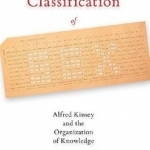
The Classification of Sex: Alfred Kinsey and the Organization of Knowledge
Book
Alfred C. Kinsey's revolutionary studies of human sexual behaviour are world-renowned. His...
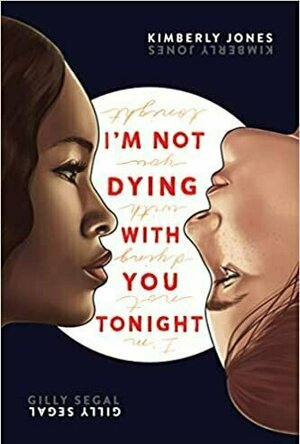
I'm Not Dying With You Tonight
Kimberly Jones and Gilly Segal
Book
"An absolute page turner, I'm Not Dying with You Tonight is a compelling and powerful novel that is...
Lottie disney bookworm (1056 KP) rated She Who Became The Sun in Books
Aug 30, 2021
Beware those who journey further – a fairytale this ain’t!
After a fortune teller destines her brother for greatness and her own life to be worthless, a peasant girl may be expected to resign herself to her fate. However, upon her brother’s premature death, the girl seizes an opportunity to adopt both his name and his destiny.
She Who Became the Sun is a brutal, hard hitting debut to The Radiant Emperor series. Comparisons tend to quote Mulan due to the setting and the nature of Zhu disguising her female birth, but this is honestly where the comparison ends. For me, this novel is as if Mulan was in the Game of Thrones novels: warring factions, political backstabbing and the quest for power, Parker-Chan really doesn’t hold back.
As the debut novel, She Who Became the Sun has a lot of work to do in world-building and revealing the history behind the main characters. As a result, the pace of writing can feel a little slow at times but the final few chapters are well worth any previous perseverance.
Despite the pace in the middle of the novel, Parker-Chan’s writing is lyrical and intense simultaneously. Zhu’s desire to live gives a desperate, raw undertone to every one of the chapters under her POV. This is in direct juxtaposition from our other main character, Ouyang, who exudes cold detachment.
Zhu and Ouyang are both orphans, both queer and, as a girl and a eunuch, are both shunned by society. However, they consistently find themselves facing each other on opposite sides of a war: they may be ‘like and like’ but they are both characters who believe that their path is already decided for them, and neither will let anyone stand in their way!
Zhu and Ouyang are complex, well-developed characters, but they are nothing without their stunning supporting cast! I particularly loved Xu Da, Esen and Ma who never showed any prejudice against our main protagonists and purely accepted them for who they were.
She Who Became the Sun intertwines historical fiction with fantasy, war strategies with spirits and death with fate. This novel manages to be gritty and violent whilst also exploring gender identity in an open and refreshing manner. Morality is blurred and ghosts are rife: I can’t wait to see what happens next.
Thank you to Netgalley and Pan Macmillan for gifting me an e-ARC of She Who Became the Sun.
After a fortune teller destines her brother for greatness and her own life to be worthless, a peasant girl may be expected to resign herself to her fate. However, upon her brother’s premature death, the girl seizes an opportunity to adopt both his name and his destiny.
She Who Became the Sun is a brutal, hard hitting debut to The Radiant Emperor series. Comparisons tend to quote Mulan due to the setting and the nature of Zhu disguising her female birth, but this is honestly where the comparison ends. For me, this novel is as if Mulan was in the Game of Thrones novels: warring factions, political backstabbing and the quest for power, Parker-Chan really doesn’t hold back.
As the debut novel, She Who Became the Sun has a lot of work to do in world-building and revealing the history behind the main characters. As a result, the pace of writing can feel a little slow at times but the final few chapters are well worth any previous perseverance.
Despite the pace in the middle of the novel, Parker-Chan’s writing is lyrical and intense simultaneously. Zhu’s desire to live gives a desperate, raw undertone to every one of the chapters under her POV. This is in direct juxtaposition from our other main character, Ouyang, who exudes cold detachment.
Zhu and Ouyang are both orphans, both queer and, as a girl and a eunuch, are both shunned by society. However, they consistently find themselves facing each other on opposite sides of a war: they may be ‘like and like’ but they are both characters who believe that their path is already decided for them, and neither will let anyone stand in their way!
Zhu and Ouyang are complex, well-developed characters, but they are nothing without their stunning supporting cast! I particularly loved Xu Da, Esen and Ma who never showed any prejudice against our main protagonists and purely accepted them for who they were.
She Who Became the Sun intertwines historical fiction with fantasy, war strategies with spirits and death with fate. This novel manages to be gritty and violent whilst also exploring gender identity in an open and refreshing manner. Morality is blurred and ghosts are rife: I can’t wait to see what happens next.
Thank you to Netgalley and Pan Macmillan for gifting me an e-ARC of She Who Became the Sun.

